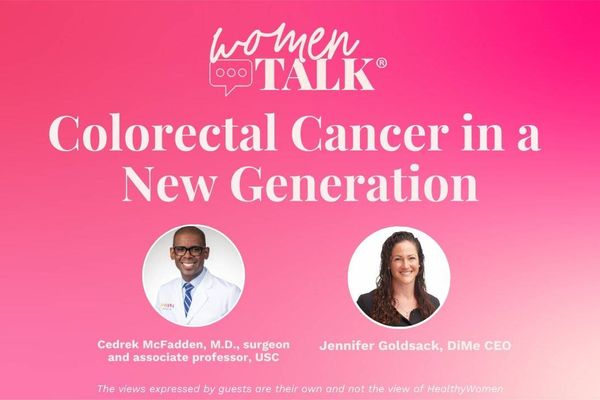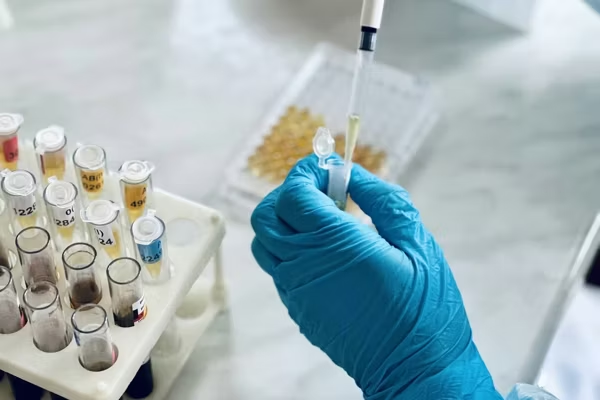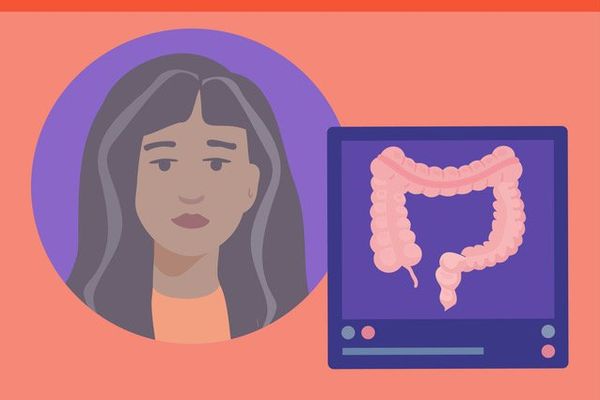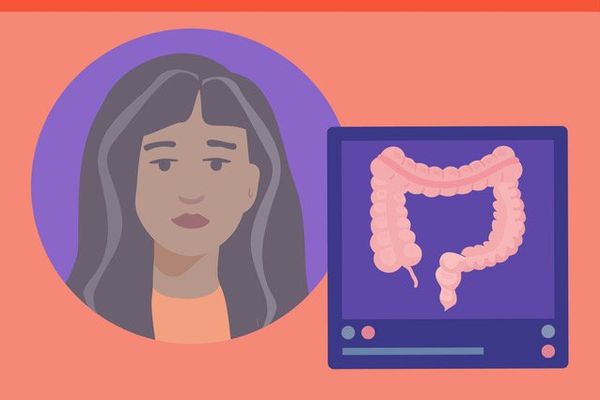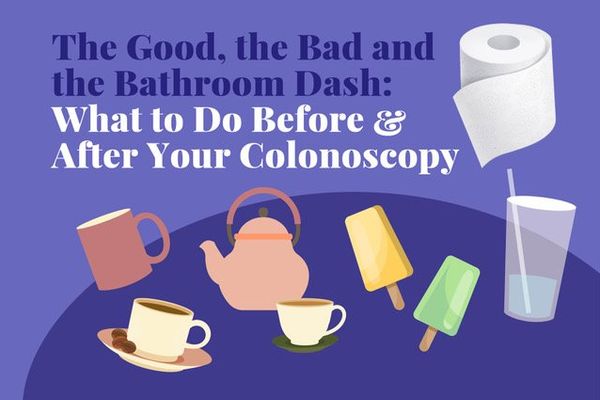Colon cancer is not the most "glamorous" of cancers—if you can call cancer "glamourous."
What I mean is that it hasn't been widely celebrated with ribbons and balloons and marches and merchandise. Rather, because it involves a less-than-appealing part of the body, many people run the other way when it comes to awareness and screening, using not-so-sophisticated but appropriate words like "ewwww," "gross," "revolting" and "I'd rather NOT."
OK, I get it. But we really need to grow up.
True story: Years ago, I chatted with an acquaintance, Amy, as she approached her 50th birthday. When I asked her if she was going to get her colonoscopy—at that time, one of the "hallmarks" of turning 50—she recoiled in horror. "I'll never go through that kind of test!" she insisted. Sadly, and with tragic irony, I found out that she died of colon cancer just a few years after our conversation.
As a health writer, I often have to hold my tongue in cases like this. I don't want to lecture anyone—especially someone I hardly know—nor burden them with statistics about how early detection and screening saves lives and that everyone should take advantage of this proven screening method.
Read about one woman's experience: How to Prepare for a Colonoscopy.
Yet, since I do have this forum, I feel a certain duty to inform whomever I can about important health facts they need to know.
If Amy were alive today, here are the things I wish she'd known. The advice could have helped her, and she could have passed the word on to other women in her life and possibly saved them from her fate.
- Colon cancer is the third-leading cause of cancer deaths in women and the second in men. It claims over 53,000 lives each year.
- The recommended age to begin screening used to be 50, but now with a startlingly larger incidence of colon cancer in younger people, some organizations like the American Cancer Society suggest beginning regular screening with a stool-based test or a colonoscopy at age 45 for people of average risk.
- Symptoms of colon cancer can be confusing, because they can mimic other conditions like infection, hemorrhoids, irritable bowel syndrome or inflammatory bowel disease. But if you have blood in your stool or bleeding from your rectum, unexplained fatigue, cramps in your lower abdomen or a change in the appearance of your stool (or dark, tar-like stools), see your health care professional. Click here for more of what to look out for.
- Your risk is greater than average if you have a personal or family history of colorectal cancer or certain types of polyps, if you've received radiation to your abdomen or pelvic area for a prior cancer, if you have a hereditary colorectal cancer syndrome like familial adenomatous polyposis or Lynch syndrome or if you have a personal history of inflammatory bowel disease (ulcerative colitis or Crohn's disease). This means you might have to start screening before age 45 and be screened more often.
- Diet and lifestyle are key to both lowering—and increasing—your risk. Experts say that maintaining a healthy body weight; being physically active; watching intake of alcohol, red and processed meat; and consuming more fiber, whole grains and plant-based foods can lower your risk. Conversely, being overweight or obese, consuming more than 18 ounces of red meat (like beef and pork) each week and having more than two alcoholic drinks daily increases your risk.
- Screening should continue through the age of 75 for people in good health with a life expectancy of more than 10 years.
- There are many tests available, but a colonoscopy is still the gold standard.
- Alternatives to colonoscopy—which researchers (and most of us!) are always searching for—include swallowing a pill-sized capsule with a camera on either end; a magnetized capsule guided by an external magnet; a virtual colonoscopy using x-ray or CT scan; or at-home stool tests including Cologuard and FIT.
- Don't get your hopes up on the above just yet. One reason? They're not all widely used or available. And for the capsule tests, you still have to prep as you would for a colonoscopy, since you need a clean colon to get a good look. And if a polyp is found, you would still need to proceed to a colonoscopy (with the exception of the magnetized capsule, which can both screen for, and remove, polyps).
- Just because you have no symptoms doesn't mean you don't need a colonoscopy. Many people are diagnosed with colon cancer without symptoms. There are often no signs or pain until the disease has progressed. Generally, the earlier the cancer is found the easier it is to treat. When found early, there is a five-year survival rate of 92 percent.
On a future blog post, I'll discuss the various preps available, and ways that people have found to get through the experience with their dignity—and health—intact.
- The Importance of Early Detection for Colorectal Cancer ... ›
- Signs You Should Get a Colonoscopy - HealthyWomen ›
- Colon Cancer - HealthyWomen ›
- Signs of Colon Cancer in Women - HealthyWomen ›
- Fast Facts: What You Need to Know About Colorectal Cancer Screening - HealthyWomen ›
- Colorectal Cancer 101 - HealthyWomen ›
- When I was 32, I Was Getting Ready to Marry and Have Kids. Then I Was Diagnosed With Colorectal Cancer. - HealthyWomen ›
- Meg Gets a Colonoscopy - HealthyWomen ›


